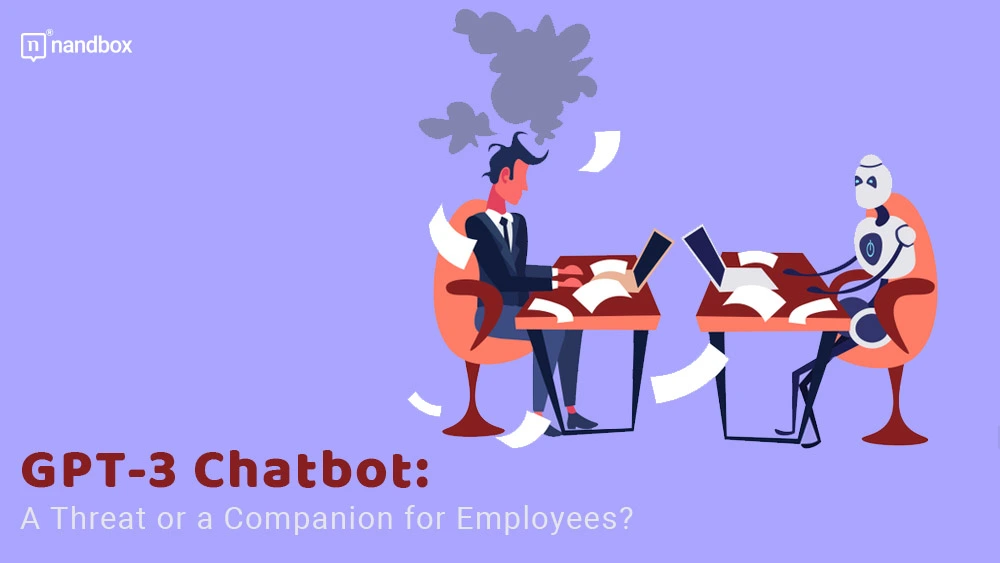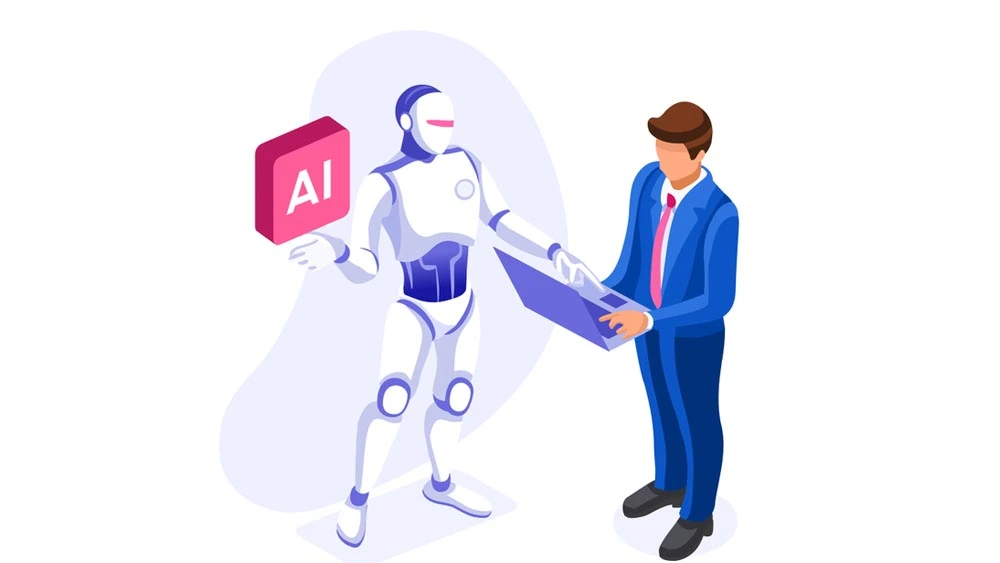Is ChatGPT encouraging an increase in the unemployment rate?
AI has been the topic of much discussion for the past century. The rise of artificial intelligence (AI) has raised a lot of questions in the professional world and for all businesses. People have been divided into two teams. One thinks it would be a great addition and would help further progress in many fields. And the other team is sensing some worries, as the implications are still uncertain and there is a chance that AI would replace some actual employees. One AI technology that has been gaining interest lately is ChatGPT. In this article, we’ll explore the potential impact of the GPT-3 chatbot. And whether it’s actually possible that it can replace some jobs and increase the unemployment rate.
What is GPT-3 Chatbot
ChatGPT, or GPT-3 Chatbot, is an AI chatbot developed by OpenAI, a renowned AI company that is also known for other powerful AI tools. The GPT-3 chatbot recently bloomed with millions of users and gained popularity like never before. More than one million users are said to have registered in one day.
ChatGPT: The New Talk of Town
But what is it about ChatGPT that makes it different from any AI tool and causes such hype? The chatbot is very advanced and powerful, in addition to being easy to use for individuals and businesses. As a user, you can ask the chatbot about anything, and it will provide you with very logical and human-like answers, it feels almost like you are interacting with a real human. It also has other capabilities, such as generating codes for app development, writing articles, research papers, and even songs! So the songwriters better watch out. What really amazed users and made the chatbot the talk of the town in a matter of hours were the outcomes. The results the chatbot provides might not be the best, but we can possibly say they were of good quality and well-written.
GPT-3 Chatbot: a Threat or a Companion for Employees?
Now that we know what ChatGPT is and what it is capable of, the question arises: is this AI technology a threat to employment opportunities? And now that we have witnessed a wave of layoffs at many big tech corporations like Amazon and Microsoft, so, is it true that ChatGPT has the potential to automate everyday tasks and conversations, thus potentially leading to fewer job opportunities for people?
While ChatGPT has been designed to help automate customer service tasks alongside humans, some experts have expressed concern that it could replace certain jobs. This is an understandable concern; after all, AI has been known to replace certain positions in the past, like factory line workers, who are mainly replaced by machines operated by AI. An overwhelming majority of businesses (83%) say that incorporating AI into their operations is a top strategic objective. However, many people on the other side claim that ChatGPT is not a one-size-fits-all solution. They claim that the chatbot is most effective when used in combination with human workers, as sometimes it could lead to serious drawbacks. So, let us demonstrate why both sides think the way they do.
Is ChatGPT Replacing Jobs?
Here, we will demonstrate the AI dominance side. We will go through the reasons many think that GPT-3 chatbot would replace many jobs and increase the unemployment rate
1. Cost and Time Saving
The reason most people think ChatGPT will take over soon is how much money and time it will save organizations. While it would take a lot of money to onboarding new employees and retain existing ones, the chatbot saves all this hassle; the chatbot cost calculator will show you the benefit of ChatGPT. Organizations wouldn’t do more than integrate the AI tool for half the money they would spend and work with it. ChatGPT can also help reduce the amount of time it takes to train new employees.
2. Flexibility
Another reason why many people believe ChatGPT could lead to job losses is its flexibility. Unlike human workers, ChatGPT can be easily reprogrammed to fit any organization’s needs. This means that businesses can use the chatbot to do different tasks, despite them being very complex. The chatbot will be able to do so perfectly.
3. Artificial Intelligence
Another factor that could lead to job losses due to ChatGPT is the fact that it is powered by AI. AI is a technology that is rapidly advancing and has the potential to automate tasks that are currently done by humans. As the capabilities of AI continue to expand, there is no way to know what new advances it will make in the future. And as a result, it is possible that many jobs could be replaced by AI-powered machines. This could lead to significant job losses, particularly in industries that rely heavily on human labor.
Is ChatGPT Creating Jobs?
Surprise? You’d probably think the reasons above are pretty much enough to prove that ChatGPT would effectively take over some jobs. However, there is more to the case than it may seem. As powerful and flexible as the GPT-3 chatbot may look, it still has some pitfalls. These could work for employees, not against them, and actually, help in creating new jobs. We will demonstrate some limitations of the GPT-3 chatbot
1. Open-End Questions
Open-ended questions are important types of questions that require more than a simple answer. ChatGPT, due to its advanced artificial intelligence capabilities, is not able to answer such questions. They require a deeper level of understanding and a more advanced approach to the question. This means that people would still be needed to handle these questions, thus creating more job opportunities for people to work with ChatGPT. This could be seen as a great opportunity for those looking for a position in the world of artificial intelligence and technology. It would provide a chance to be at the forefront of developing the technology further and helping shape the future of AI.
2. Limited Data Timeline
ChatGPT relies heavily on data that is available online. As mentioned on their website, they gathered millions of pieces of data online from different libraries and archives. However, the data the GPT-3 chatbot provides is limited to a specific timeline that ends in 2021. This means that the chatbot wouldn’t know any of the current news or trends. This in turn increases the potential for providing inaccurate answers. The chatbot is not kept up to date with what has been going on recently. In order to stay up to date, it needs to be fed with the latest data. This means that the chatbot would need regular human interaction to stay updated on the latest trends and needs. This allows for more job opportunities for people to work with ChatGPT for data analysis and gathering. Thus offsetting the potential increase in the unemployment rate mentioned above.
3. Data Bias
As mentioned above, the chatbot was fed with millions of records from everywhere on the internet. This unsupervised access to all types of data and opinions from many resources is dangerous rather than beneficial. The chatbot alone can’t differentiate between stereotypes, false information, and biases. Meaning that there’s a very likely chance that the GPT-3 chatbot would provide inaccurate or biased information in one direction and not adequately diverse data. This has happened with many users when. Upon generating pieces like songs, articles, or stand-up comedies, the chatbot actually provided answers with stereotypical lines toward specific groups. It’s definitely not cool. To avoid this, more people would still be needed to ensure that the data is correctly fed to the chatbot and that the results are accurate. This could create more job opportunities for people to work alongside ChatGPT.
4. Human-Interaction
Lastly, despite the fact that ChatGPT can do a lot of tasks independently, it is still not capable of providing the same level of human interaction as a real person. This is particularly true when it comes to customer service, where empathy and a personal approach are still needed to provide a good service. This means that while ChatGPT may automate certain customer service tasks, there will still be a need for human customer service agents who can provide the necessary human interaction. Also, it is impossible for jobs like human resources and managerial positions to be replaced by AI. Such positions need many skills, like decision-making and managerial skills. AI tools lack such skills, and it would be very hard for them to imitate them. Thus, ChatGPT could actually lead to the creation of new jobs in many fields, instead of replacing existing ones.
Conclusion
Given the justifications above, while it is understandable to be concerned about how ChatGPT could affect the job market. It is unlikely to lead to a large-scale decrease in employment opportunities and could even create new jobs. While the chatbot seems promising and uses advanced algorithms and technical approaches, it still needs much time before it can be told whether or not it can live up to all the potential it offers. That is why it is unlikely that it will have a significant impact on the overall unemployment rate.
Of course, only time will tell, and while it is possible that ChatGPT could lead to some job losses in certain sectors. It is also possible that it will create a whole new field, in need of unique and fresh talents and minds. In the end, it’s important to remember that ChatGPT is still in its early stages, and it will take some time to see the full impact it has on the job market.






